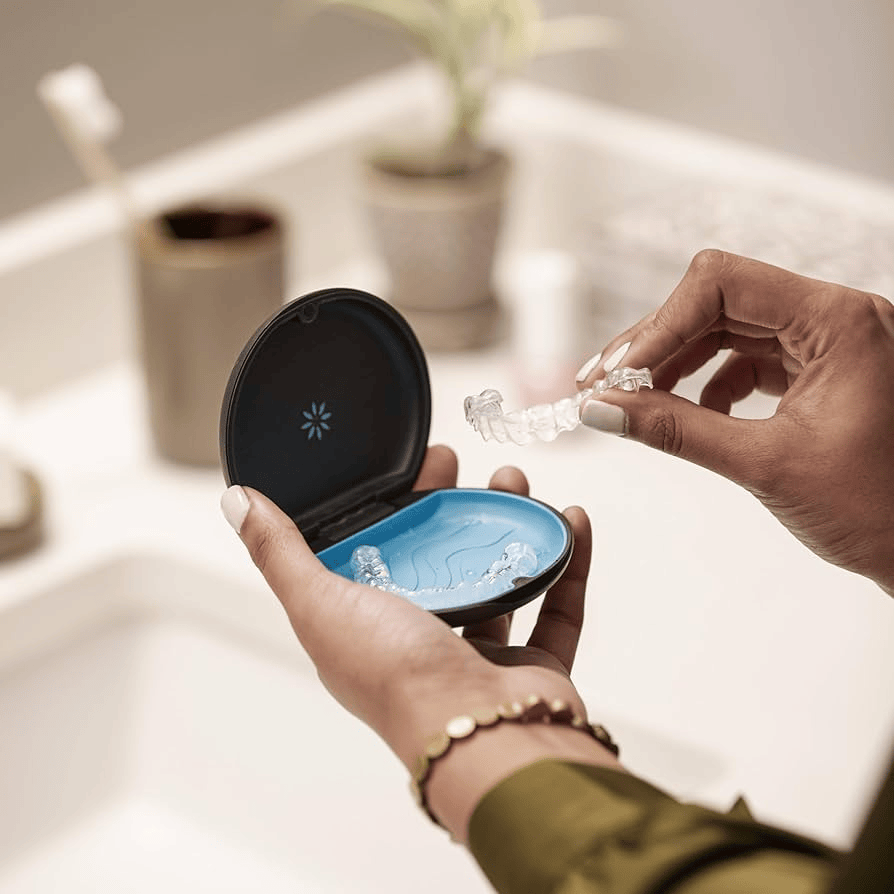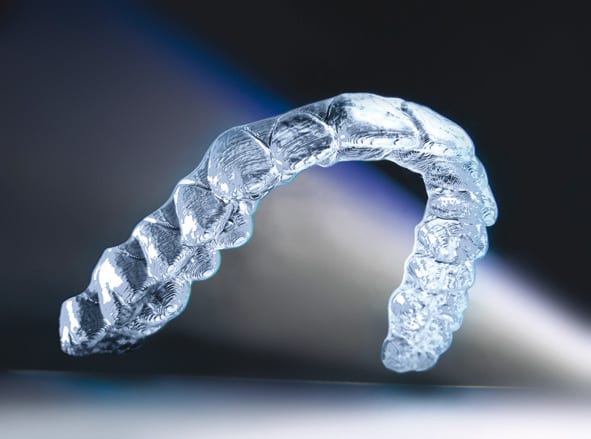Dental assisting offers more than just a foot in the door to healthcare—it’s a career path with stable earnings, geographic flexibility, and a range of advancement opportunities. Whether you're comparing salaries by specialty, considering part-time work, or evaluating long-term potential, this guide breaks down the numbers and trends that matter most.
Table of contents
Factors That Influence Dental Assistant Pay
What Impacts How Much You’ll Earn?
While national salary averages provide a helpful benchmark, your actual earnings as a dental assistant will depend on several key variables beyond location or credentials.
Top pay factors include:
Years of experience working in general or specialty practices
Expanded function certifications such as radiography or coronal polishing
Practice type and size—DSOs and oral surgery clinics often pay more
Scheduling availability, especially for evening or weekend shifts
Dental Assistant Income Comparison
How Much Do Dental Assistants Make?
According to the U.S. Bureau of Labor Statistics, the national average dental assistant salary is approximately $44,820 per year, or about $21.55 per hour. Actual pay varies based on experience, credentials, location, and type of dental practice.

Dental Assistant Salary by State
States like California, Alaska, and Massachusetts typically offer the highest pay for dental assistants, often exceeding $50,000 annually. Southern and Midwest states may offer lower salaries but often pair that with a reduced cost of living, making income comparison a regional calculation.

Dental Assistant Entry-Level and Hourly Pay
Most entry-level dental assistant pay starts between $16–$20 per hour, depending on local demand and whether the position includes expanded functions or radiography certification.

Orthodontic and Pediatric Dental Assistant Salary
Orthodontic and pediatric dental assistants play a specialized role in clinical care, supporting complex procedures and managing high-volume patient schedules. These assistants are responsible for preparing treatment rooms, guiding patients through multi-phase care, and assisting with tasks like bracket changes, impression taking, and child-friendly behavior techniques. Their role is essential to maintaining efficiency in specialty practices where precision, speed, and patient comfort are key to successful outcomes.
What Is the Highest Paid Dental Assistant Role?
Orthodontic dental assistants and oral surgery assistants often command higher salaries due to the technical skills and sedation training required. Surgical settings, pediatric practices, and multi-specialty clinics may also offer performance-based bonuses and shift differentials.
Dental Assistant Performance Incentives and Bonuses
Pay increases are typically tied to performance reviews, years of service, and expanded function certifications. Practices may also offer bonuses, CE reimbursement, or tiered pay models tied to performance incentives or case production.

Dental Assistant Job Outlook and Lifestyle
Can I Make a Living as a Dental Assistant?
Yes—especially in states with strong healthcare demand and competitive clinic markets. While dental assistants may not start with high salaries, the field offers financial stability without the burden of student loan debt from a four-year degree.
Cost of Living vs Salary Dental
Many professionals choose this role for its balance of technical skill, patient interaction, and career mobility. With options for certification, promotion, and specialization, dental assisting is often considered a sustainable long-term career, especially for those interested in healthcare but not pursuing advanced degrees.
Long-Term Dental Assistant Careers and Job Security
What Does Dental Assistant Career Growth Look Like?
Many dental assistants transition into roles such as lead assistant, treatment coordinator, or office manager. Others become dental hygienists or instructors. Some practices, particularly DSOs and group practices, offer career growth pathways tied to performance, leadership, or additional credentials.
Is the Dental Assistant Job Outlook Positive?
The demand for dental assistants is expected to grow by 7–8% over the next decade, outpacing the national average for many occupations. This growth is driven by expanded access to care, an aging population, and increased interest in preventative dental services.
Full-Time vs. Part-Time Dental Assistant Jobs Near Me
Full-time dental assistants generally work 32–40 hours per week, often with predictable daytime hours and limited weekend responsibilities. Benefits may include healthcare, paid time off, and overtime pay depending on the practice.
Part-Time Dental Assistant Shift Schedules and Flexibility
Dental assistant part-time jobs are widely available and ideal for students, parents, or individuals seeking work-life balance. Practices often hire part-time staff for hygiene support days, ortho rotations, or evening/weekend shifts.
Is Dental Assistant Work-Life Balance Achievable?
Yes. Dental assisting offers more predictable hours than many other healthcare roles. Assistants in private practices, orthodontic clinics, or public health settings can often choose a schedule that aligns with personal priorities.
How to Maximize Your Earning Potential
To grow your salary as a dental assistant, consider combining technical skill development with strategic career planning. Entry-level roles may start modestly, but deliberate steps can lead to consistent pay increases.
Strategies to increase your income:
Pursue state-approved certifications like RDA, EFDA, or dental radiology
Apply to practices that offer production bonuses or tiered pay models
Consider high-demand specialties like oral surgery or orthodontics
Take on added responsibilities such as inventory, chart audits, or team training
With the right credentials and work ethic, dental assistants can move into leadership roles and achieve long-term salary growth without changing careers.
How Dental Assistants Increase Their Value Over Time
Beyond certifications and clinical hours, many dental assistants boost their long-term earning potential by taking on responsibilities that directly impact patient outcomes and practice productivity. These real-world contributions often justify pay raises and promotions.
Cross-Training in Multiple Specialty Areas
Dental assistants who can support ortho, pedo, or surgical departments add flexibility and value to the team—especially in multi-specialty or group practices.
Tasks include:
Assisting during orthodontic bonding, wire changes, and appliance checks
Supporting pediatric procedures with behavior management techniques
Preparing sedation rooms for oral surgery or complex extractions
Learning protocols unique to specialty workflows (e.g., bracket trays or sealant kits)
Taking Ownership of Key Clinical Systems
Stepping into roles beyond chairside support—like inventory management or sterilization oversight—positions you as an essential contributor to operational efficiency.
Tasks include:
Managing supply orders and coordinating with vendors
Tracking expiring materials and rotating stock
Overseeing instrument sterilization logs and OSHA compliance
Training new hires on setup protocols and clinic flow
Can you live off a dental assistant salary?
Yes, a dental assistant salary can support a modest lifestyle, particularly for individuals in single-income households. With an annual income around $37,000, many assistants are able to manage essential living costs like housing, food, and transportation—especially in regions with a lower cost of living.
What is the future outlook for dental assistants?
The job outlook for dental assistants is strong. The U.S. Bureau of Labor Statistics projects an 8% employment growth through 2033—outpacing the average for many other professions. This trend could lead to nearly 55,000 job openings each year, making it a stable and opportunity-rich career choice.
How much do dental assistants get paid in the US?
In the United States, dental assistants typically earn between $20 and $30 per hour, though rates may vary depending on several factors. Geographic location, level of experience, education, and whether the assistant holds additional certifications all influence earning potential.
What's the next step up from dental assistant?
Many dental assistants who want to advance in the dental field choose to become dental hygienists. This role includes more clinical responsibilities, requires additional education, and often offers significantly higher pay and autonomy within the practice.
Who gets paid more CNA or dental assistant?
Generally, dental assistants earn more than certified nursing assistants (CNAs). While both roles are in demand and accessible through vocational training or community colleges, dental assistants tend to receive higher wages due to their specialized skills and clinical responsibilities in dental care settings.
Conclusion
A career in dental assisting offers competitive pay, regional flexibility, and consistent job growth. Whether you're just starting out or planning your next promotion, understanding the variables that influence dental assistant salary and income can help you make strategic career decisions. With high demand, multiple specialties, and increasing access to professional development, dental assisting remains a reliable and rewarding healthcare profession.






